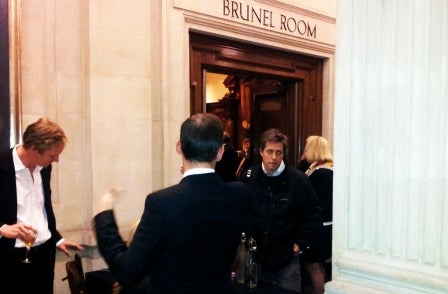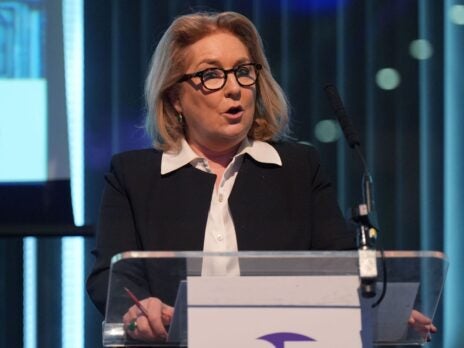
It was a pity Hugh Grant decided not to take his reserved seat at the Free Speech Network launch meeting I spoke at in Westminster last Thursday, after his Channel 4 camera crew was turned away. Grant said he wanted to find out what those inside were saying about free speech, as if such a concept was a foreign language to him, so he might have learnt something. Then again, if his contribution had been as sparkling as that of his co-crusader and former funny man Steve Coogan – who stood at the back looking grumpy throughout, then gave a half-hearted “boo” at the end – maybe we did not miss much.
Of course the celebrity crusaders normally have a script written by the Hacked Off hackademics, in their role as voice-over artists for the tabloid-bashing campaign. Not that there was any shortage of these sanctimonious hackademic poachers-turned-gamekeepers inside the meeting. And with John Humphrys in the chair in 'the BBC is neutral' mode, they were given plenty of scope to drone on about the need for statutory-backed press regulation post-Leveson, arguing the detailed toss with Professor Tim Luckhurst, whose important pamphlet against such measures, “Responsibility without Power”, was launched at the meeting.
As I suggested, you can call it what you like – light-touch statutory-backed regulation, even Gangnam-style statutory-backed regulation – but it would still amount to an act of state intervention in the affairs of an allegedly free press. As, indeed, did the Leveson Inquiry itself. And state intervention in all of its forms is what defenders of press freedom in Britain have been fighting against for more than 500 years.
The launch of the Free Speech Network has raised the banner against statutory-backed regulation. The other concern I tried to raise on Thursday, however, was the risk of that statutory spectre prompting the industry to make too many concessions, and to propose a system of 'self-regulation' that is little better.
The alarm bells started ringing when it was reported that Lord Hunt wanted a new “independent” regulator that would have more powers to police the press than are currently enjoyed by the police (and look what they are up to). Then in July Lord Black spelled out the industry’s proposals for an investigations unit with the power to put miscreant publications on summary trial and fine them up to £1m without the right to appeal.
Black’s proposal for a PCC2 would sign publications up to binding five-year contracts. To press them to commit, it is suggested that only those who sign up could receive press cards for their journalists, material from the Press Association, and possibly business from major advertisers.
This all seems a considerable step too far away from anything recognisable as self-regulation. We do not want licensing of journalists or publications by the state. But should we be dependent on 'licences to report' endorsed by the major industry players, either? We do not want a return to indirect taxes and financial penalties being imposed by the courts or other state bodies. So why should we endorse a system of fines and financial penalties imposed on dissident publications by an 'independent' body? It all rather smacks of coercion to toe the line by any other name.
The most pressing worry post-Leveson is not crude state censorship, but the reinforcing of an atmosphere of conformism that will leave us with a press more sanitised than it already is. A safety-first system of strict regulation, with the threat of the state stepping in always behind it, seems unlikely to encourage a freer and more open attitude.
Tim Luckhurst’s pamphlet raises the question of why we need specific regulation of the press at all. It is a good question. In the US, with its First Amendment bar on any law that infringes freedom of the press, Lord Justice Leveson and his cheerleaders would be given short shrift. As Tim also says, of course, that option is not on the table in the current debate. But I think it is important that we start from the position that press freedom is indivisible, with no buts, and that the press in all its forms is already neither free nor open enough, even before a new regulator of whatever design comes along to wash naughty newspapers’ mouths out with carbolic soap.
If we must suggest a system of some sort, I am for self-regulation of the press with the emphasis on the self, rather than the regulation. As Ian Hislop told the Leveson Inquiry, the press should be accountable to the existing law, and then accountable to its readers, the public. It would be good if defenders of freedom of expression could insist on putting the self back into self-regulation, as well as having the confidence to face down the hackademics and celebrity crusaders and their demands for a 'victims’’ veto' on the future of press freedom.
Email pged@pressgazette.co.uk to point out mistakes, provide story tips or send in a letter for publication on our "Letters Page" blog






